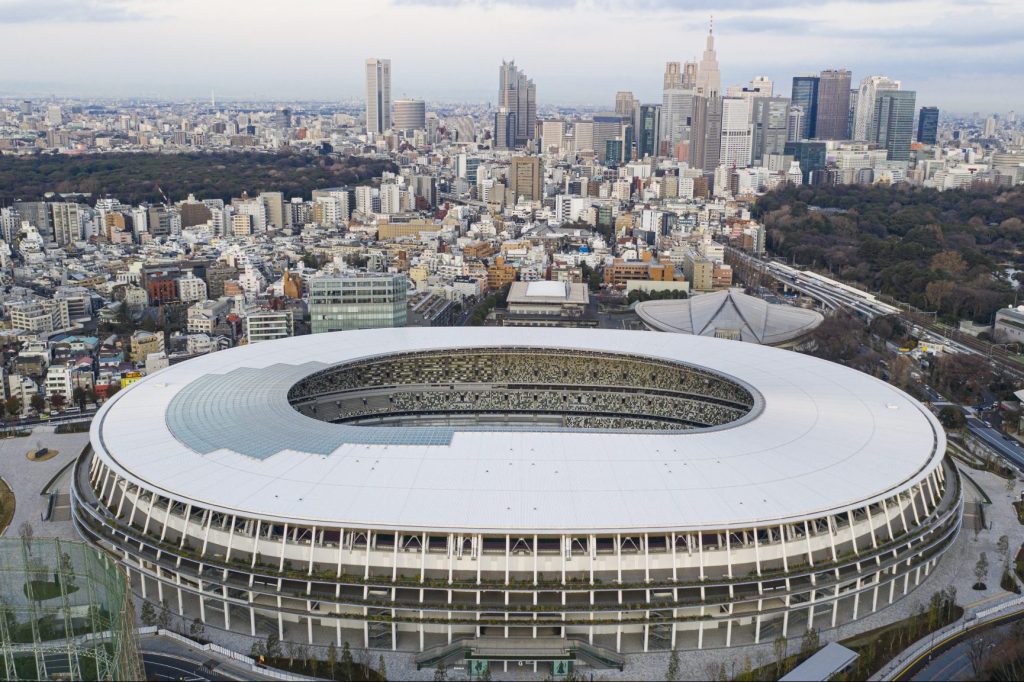Skift Take
Athletes go for gold at the Olympic Games, but hoteliers don't typically walk away with many prizes in the form of long-term revenue gains from the global mega-event.
A leading Japanese hotelier isn’t factoring next summer’s rescheduled 2020 Summer Olympics in Tokyo into his company’s survival and recovery model from the coronavirus pandemic.
History shows it may be a smart strategy for anyone in the hotel industry.
Hoshino Resorts CEO Yoshiharu Hoshino mapped out an 18-month survival plan for his company, which includes brands like Risonare and Omo, after seeing demand drop by more than 90 percent in April and May. While that model accounts for waves of demand increases and even resurgences of the virus, Hoshino isn’t banking too much hope on the Olympics when typically all eyes would be on the host city.
“The Olympics is only a two or three-week event. It’s not big demand for us,” he said last week at Skift Forum Asia. “We don’t really count on Olympics demand to increase our annual performance for our hotels.”
There is plenty of reason for a hotel owner in Japan to hope for revenue-generating gold from next years Olympics. Average Japanese hotel occupancy rates last month were just shy of 40 percent, and revenue per available room — the industry’s key performance metric — is down nearly 60 percent, according to STR.
Instead, Hoshino is turning to capturing as much of Japan’s domestic traveler base as possible.
The company’s Omo midscale brand launched in 2018 aimed at Japan’s tourist boom expected to carry up to the 2020 Olympics. But Japan’s reliance on foreign travelers may have been overstated two years ago.
Of the $258 billion in Japanese tourism seen in 2018, $204 billion stemmed from domestic travelers, Hoshino said. Less than 20 percent of the travel market volume came from inbound foreign travelers. Japanese travelers spent $11 billion abroad last year, but — given pandemic travel restrictions — Hoshino sees that as an opportunity to gain those customers during a catastrophic year for travel, especially to foreign countries.
“We have a huge outbound market: Japanese people traveling to Hawaii, China, Hong Kong, and so on,” he said. “These people are shifting back to domestic destinations this year because they can’t go out from this country. We decided to target this market … That was key to surviving this period.”
Olympic Flameout
Olympic supporters typically sell their communities on the idea of hosting the event with the notion massive economic benefits will last well after the Olympic flame goes out at the Closing Ceremonies. But hotel performance tells a different story.
“Any hotel manager that tells you their business model depends on three weeks of occupancy should be fired,” said Chris Gaffney, a professor at New York University’s Jonathan M. Tisch Center of Hospitality. “What about the other 344 days of the year?”
Rates, occupancy, and revenue may increase during the actual event, but these metrics often decline after — likely due to new supply added ahead of the Games.
Occupancy fell more than 2 percent following the 2010 Winter Olympics in Vancouver and remained flat two years later, according to a University of Delaware study. Revenue per available room dropped 4 percent the year after the Olympics and by nearly 3 percent in 2012. Vancouver’s hotel supply grew by roughly 7 percent in the lead-up to the Olympics.
Sydney’s hotel supply grew by nearly 12 percent ahead of its 2000 turn at hosting the Summer Olympics. Occupancy fell nearly 8 percent in the Australian city the year after the Games ended, and revenue per room dropped by 30 percent. Daily rates declined by 24 percent.
“People like to buy into the idea that the Olympics are important economically for hoteliers and beyond, but they’re not because it’s such a short-term event,” Gaffney said. “It’s not a national event, either. It’s a very small ecosystem of hotels within the national tourism context. It’s three weeks where you can expect about 85 percent occupancy, which I’d imagine these hotels in the summer are hitting anyway.”
It still isn’t clear what the 2020-in-2021 Summer Olympics will look like, especially with uncertainty surrounding the global availability of a coronavirus vaccine or treatment. Japan remains closed to foreign tourists, and yet another question mark hovers over when — or if — borders will be open to visitors in time of the Opening Ceremony.
That uncertainty is yet another reason for hoteliers to not bank on such a short-term event leading them through a pandemic recovery in revenue.
But even if the mega-event isn’t seen as a silver bullet for the tourism industry, Hoshino isn’t turned off by Tokyo’s turn at hosting, either.
“The Olympics is a big event. It’s a chance for us to show the attractions of Tokyo and also the appeal of other parts of Japan,” he said. “It might be a less number of travelers [or] no crowds or audience, but I’m confident we will have the Olympics next year.”
Have a confidential tip for Skift? Get in touch
Tags: coronavirus, coronavirus recovery, hoshino resorts, japan, tokyo olympics
Photo credit: Hoshino Resorts isn't banking on the 2020 Summer Olympics (to open next year at Japan National Stadium, pictured) to assist in getting back to pre-pandemic revenue levels. Arne Müseler / Wikimedia
